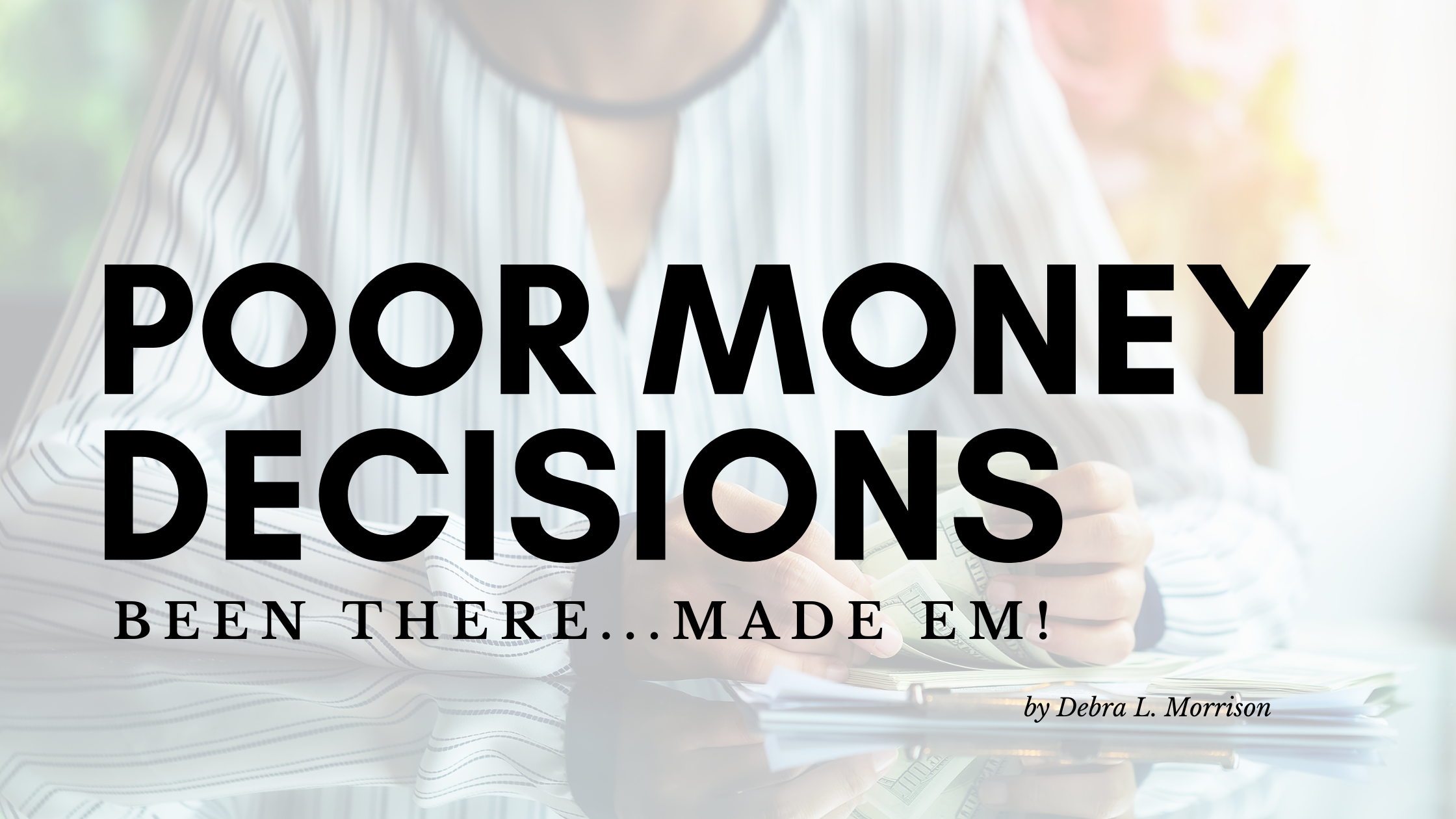Everyone makes poor money decisions at some time in their life; it’s inevitable. Even if you aren’t making any investment or money decisions at all because you may feel paralyzed, that in and of itself is a decision. And a very poor one at that!

Why? Because time leaches risk out of the market, period. If we invest now, we can enjoy the magical effect of our money compounding, while we sleep. And over time, if history is any guide, we will have ‘made money’.
Why? Because time leaches risk out of the market, period. If we invest now, we can enjoy the magical effect of our money compounding, while we sleep. And over time, if history is any guide, we will have ‘made money’.
We can Google “economic, or market theory” and imagine that investors are actually rational individuals taking all of the variables into consideration before making a decision which invariably results in the best possible decision possible. However Behavioral Economic Research pulls back this idyllic curtain and measures what people actually do. And as you may imagine, we find that there’s a marked difference between theory and practice.
First of all, we live in an add-water-and-stir-society (I’m attempted to muse, add-water-and-stir-quickly-society) so we’re conditioned to notice (& focus upon) short-term at the expense of long-term.
While we might have a well thought out investment plan if we look at the results we’ve gotten in the last 2 ½ days and those results are disappointing relative to what we had expected, more times than not people will go ahead and abandon that strategy for a different strategy that they feel at that time will be superior, of course. Now I’m exaggerating to get your attention, yet in practice it’s not terribly different in terms of the incredibly short-time horizon with which many people judge their investment returns. And then I’ll take it one step further, to compare their performance against a similar benchmark most typically the Standard and Poor’s 500 investment.
Fee-Only CERTIFIED FINANCIAL PLANNERS™ are required to show investors their Time-Weighted-Return and they often show the comparative index’s Time-Weighted Return for the same period. And while this is somewhat informative at one level, I’m loathe to suggest that one should aim to ‘beat the Standard and Poor’s 500 (or any other index). Instead, imagine what you want to do/accomplish/buy in 5, 10, 15 & 20+ years, put an approximate price tag on them, and then create an investment plan–that takes full advantage of the current income tax code relative to your earnings, etc.–in order to achieve those goals.
First of all, I’m inviting you to look at goal setting through the lens of being the Master Creator of your future, instead of some hopeless exercise in drudgery! Your future is in your hands; seize it, shape it, achieve it, be PROUD of it!
See how focusing upon your goal can take your notice, or focus, OFF of ‘beating the index’? Cause, guess what, the index doesn’t give a hoot about you and your goals!
We Can Do It Women™
